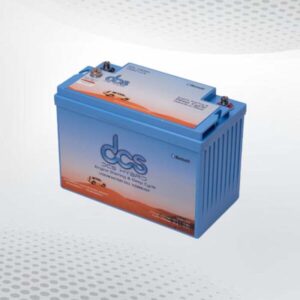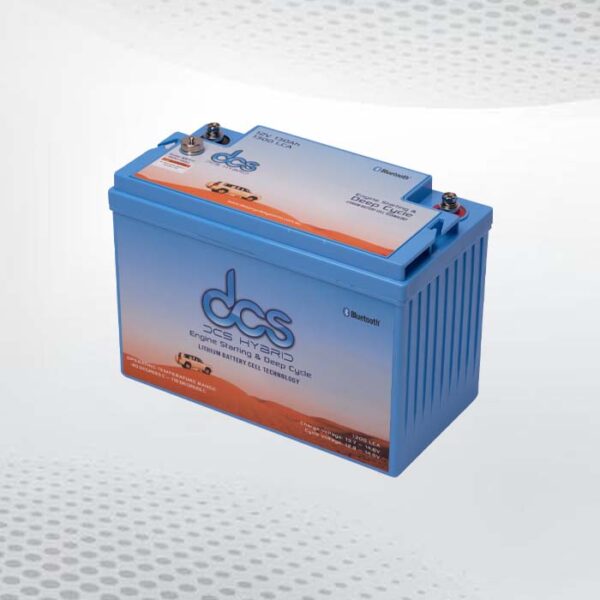You tired of constantly stopping and recharging your power tools while working on a project? Look no further than the 18V lithium battery! This powerful and long-lasting battery is revolutionizing how we work with cordless tools. Say goodbye to the inconvenience and limitations of traditional batteries and say hello to increased productivity and efficiency. In this blog post, we’ll explore the benefits and features of the lithium battery and how it can take your work to the next level.
Understanding The Power Of 18 Volt Lithium Batteries
When it comes to power tools, the lithium battery reigns supreme. But what makes this battery so powerful? Let’s dive in and understand the power behind 18-volt lithium batteries.
- Firstly, it’s important to note that the voltage of a battery directly impacts its power output. The lithium battery offers a higher voltage than traditional batteries, which means more power for your tools. This increased power allows you to easily tackle even the toughest tasks, whether drilling through concrete or driving in screws.
- Not only does the lithium battery provide more power, but it also delivers consistent power throughout its entire runtime. Unlike traditional batteries that gradually lose power as they deplete, lithium batteries maintain a consistent voltage until they are fully discharged. This means you can work at maximum efficiency until the end without losing power or performance.
- Lithium batteries have a high energy density, meaning they can store more energy in a compact size. This allows for smaller and lighter battery packs, reducing the overall weight of your power tools and providing greater mobility. No more lugging around heavy equipment!
The Advantages Of Using Large Lithium Ion Battery For Your Tools
When it comes to powering your tools, size matters. And that’s where large lithium-ion batteries come into play. These batteries offer a range of advantages that make them a must-have for any serious DIYer or professional.
higher ampere-hour ratings
First and foremost, the capacity of large lithium ion battery is unmatched. With higher ampere-hour ratings, these batteries can provide longer runtimes, allowing you to work on your projects without constant interruptions for recharging. No more wasting time waiting for your battery to charge or switching out batteries mid-project. With a large lithium-ion battery, you can power through your tasks with ease and efficiency.
Superior Performance
In addition to their impressive capacity, large lithium-ion batteries also offer superior performance. Thanks to their advanced technology, these batteries deliver a steady and consistent power output, ensuring your tools operate at their optimum levels throughout the runtime. Say goodbye to the frustrating power fade you often experience with traditional batteries. With large lithium-ion batteries, you can count on reliable and sustained power, no matter how demanding your project may be.
Durability
Furthermore, large lithium-ion batteries are designed with durability in mind. They are built to withstand heavy use and frequent charging cycles, making them highly resistant to wear and tear. This means you can rely on your battery to deliver peak performance, even after years of use. No more worrying about your battery dying on you in the middle of a job. With a large lithium-ion battery, you can trust it will stand up to the test of time.
 Choosing The Right 18 Volt Lithium Battery For Your Needs
Choosing The Right 18 Volt Lithium Battery For Your Needs
When choosing the right lithium battery for your needs, there are a few factors to consider.
- First and foremost, you’ll want to think about the type of tools you’ll be using. Different tools have different power requirements, so selecting a battery that can meet those demands is important. Check the manufacturer’s recommendations for compatible battery voltages and amperage ratings.
- Next, consider the runtime you’ll need. If you’ll be working on longer projects or need extended usage periods without interruptions, a battery with a higher ampere-hour rating will be ideal. This will ensure that you have enough power to get the job done without having to recharge or switch out batteries constantly.
- Additionally, pay attention to the battery’s charging time. Some batteries may charge more quickly than others, which can be crucial if you have limited downtime between tasks. Look for batteries with fast-charging capabilities to minimize any waiting time.
- Finally, consider the overall durability and quality of the 18 volt lithium battery. Look for reputable brands known for producing reliable and long-lasting batteries. This will ensure that your investment in a high-quality lithium battery will serve you well for years.
Maximizing Work Efficiency With An Lithium Battery
When maximizing work efficiency, a lithium battery is your secret weapon. First and foremost, fully charge your battery before starting any task. This will ensure a full and uninterrupted power supply throughout your work. Additionally, having a backup battery on hand is a good idea, especially if you have a big project ahead. This way, you can easily switch out batteries without any downtime.
Another tip to maximize efficiency is to match your battery’s power to your tools’ requirements. Using a lithium battery with tools with a higher power requirement will ensure optimal performance and prevent any strain on the battery. Additionally, it’s important to maintain and care for your battery properly. Store it in a cool and dry place when not in use, and avoid exposing it to extreme temperatures. Regularly clean the battery contacts to ensure a good connection and check for any signs of wear or damage.
Maintenance Tips To Extend The Life Of Your Lithium Battery
Taking care of your lithium battery is essential to prolong its lifespan and maintain optimal performance. Here are some maintenance tips to help you get the most out of your battery:
- Store your battery properly: When you’re not using your lithium battery, store it in a cool and dry place. Avoid exposing it to extreme temperatures, which can negatively impact its performance and lifespan.
- Clean your battery: Regularly clean the battery contacts with a soft cloth or brush to remove dirt or debris. This will ensure a good connection between the battery and your power tools, maximizing power transfer and efficiency.
- Avoid overcharging: Overcharging your lithium battery can lead to premature wear and reduced performance. Always follow the manufacturer’s recommended charging time and avoid leaving your battery plugged in for extended periods after it has reached full charge.
- Use your battery regularly: Even if you’re not using your power tools frequently, it’s important to use and recharge your lithium battery regularly. This helps to keep the battery cells active and prevents them from deteriorating over time.
- Avoid deep discharges: While lithium batteries are designed to handle deep discharges, it’s generally best to avoid completely draining your battery if possible. Aim to recharge it when it reaches around 20% to 30% capacity to maintain optimal performance and prolong its lifespan.
Safety Guidelines When Using Lithium Ion Batteries
When it comes to working with any type of battery, safety should always be a top priority. Lithium-ion batteries are no exception. While these batteries are generally safe, it’s important to follow some safety guidelines to protect you and your tools. Here are some important safety tips to keep in mind when using lithium-ion batteries:
- Read the manual: Before using your lithium-ion battery, take the time to read the manufacturer’s manual and familiarize yourself with the specific safety instructions. Each battery may have unique requirements and precautions you must be aware of.
- Handle with care: Lithium-ion batteries should be handled carefully to avoid any physical damage or exposure to extreme temperatures. Avoid dropping or crushing the battery, and keep it away from heat sources.
- Use the correct charger: Always use the charger specifically designed for your lithium ion battery. Using an incorrect charger can cause overheating or damage to the battery.
- Avoid overcharging: Overcharging your lithium ion battery can be dangerous. Follow the recommended charging times, and never leave your battery plugged in longer than necessary.
- Store properly: When not in use, store your lithium-ion battery in a cool and dry place away from flammable materials. Avoid storing it in high-temperature environments or direct sunlight.
- Inspect for damage: Regularly inspect your battery for any signs of damage such as cracks, leaks, or swelling. If you notice any abnormalities, stop using the battery immediately and replace it.
- Don’t disassemble: Never attempt to disassemble or modify your lithium ion battery. Doing so can be extremely dangerous and may cause fire or explosion.
Common Applications For 18V Lithium Batteries
Regarding common applications, 18V lithium batteries have many uses that can benefit DIYers and professionals. Here are some of the most common applications for these powerful batteries:
- Power Tools: 18V lithium batteries are perfect for powering various tools, such as drills, impact drivers, circular saws, and reciprocating saws. With their high power output and long runtimes, these batteries can easily handle even the toughest tasks.
- Outdoor Equipment: lithium batteries are ideal for powering outdoor equipment from lawn mowers to trimmers. Say goodbye to the hassle of dealing with cords or the limitations of gas-powered tools. With an lithium battery, you can achieve the freedom and flexibility to tackle outdoor projects efficiently.
- Lighting: Need portable lighting for your workspace or outdoor activities? 18V lithium batteries can power LED work lights, flashlights, and camping lanterns. With their long runtimes, you can illuminate your surroundings without worrying about running out of power.
- Portable Electronics: Many portable electronics, such as radios, speakers, and mobile devices, can be powered by 18V lithium batteries. This makes them a convenient option for camping trips, outdoor events, or when you’re on the go.
- Automotive: 18V lithium batteries can also be used in certain automotive applications, such as jump starters or power inverters. These batteries provide a reliable and portable power source for emergencies or when you need to power electronics in your vehicle.
FAQs
Q: Can I use an 18V lithium battery with any power tool?
A: It’s important to check the manufacturer’s recommendations for compatible battery voltages and amperage ratings. While many power tools are compatible with 18V lithium batteries, some may require a different voltage. Always ensure that you are using the correct battery for your specific tool.
Q: How long does an 18V lithium battery last?
A: The runtime of an 18V lithium battery can vary depending on the ampere-hour rating and the power demands of your tools. Higher ampere-hour ratings generally provide longer runtimes. It’s best to consult the battery manufacturer’s specifications to know how long you can expect your battery to last.
Q: Can I charge an 18V lithium battery with any charger?
A: It is recommended to use the charger specifically designed for your 18V lithium battery. Using an incorrect charger may lead to overheating or damage to the battery. Always follow the manufacturer’s instructions for charging your battery.
Q: Are lithium batteries safe to use?
A: While lithium batteries are generally safe, it’s important to follow safety guidelines and handle them carefully. Avoid physical damage to the battery, store it properly, and use the correct charger. Additionally, regularly inspect your battery for any signs of damage and discontinue use if any abnormalities are detected.
Conclusion
In conclusion, the 18V lithium battery is a game-changer when powering your tools. Its high voltage, consistent power output, and compact size offer a range of benefits that can greatly enhance your work efficiency and productivity. No longer will you have to deal with the inconvenience of constantly recharging traditional batteries or being limited by their power output.
| Other Good Articles to Read |
| Niche Blogs Connect |
| Blogs 97 |
| Blog Stitution |
| Blogs Unplugged |
| Blogs Cotch Rouge |
| Blog Signatr |
| Blog Sintonias |
| Blog Zilla |
| Consumer Forums |
| Finance Forums |
| G Blogs |
| Too Blog |

